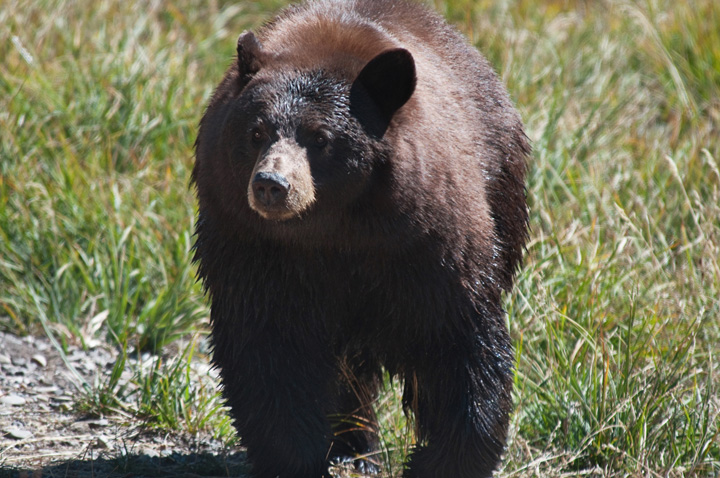A spike in bear activity in Port Coquitlam has prompted the city’s bylaw enforcement team to ramp up efforts to keep the animals out of neighbourhoods.

In June, there were 98 reported bear sightings, up from 50 in May.
Officials said the increase in sightings indicates that bears are increasingly being drawn to neighbourhoods to raid unsecured garbage carts and bins and unpicked or fallen fruit.
Once bears hit the jackpot, they’ll keep returning for more snacks.
To prevent more bears from coming in to neighbourhoods to look for food the bylaw enforcement team will be enforcing the “solid waste” bylaw.
Officers will be focusing particularly on areas north of Lougheed Highway, Nacht Avenue and McPherson Drive where most bear activity has been reported.
Officers will be making sure residents secure garbage in wildlife-resistant enclosures, such as a garage or shed, or by using a city-approved wildlife lock.
Garbage carts must be set out between 5:30 a.m. and 7:30 a.m. on collection day and resecured by 7 p.m. that evening.
The city is also advising property owners to:
- Secure and lock up all potential food sources, including food scraps and food-soiled papers in the green cart, beverage containers, barbecue grills, compost piles, pet food, bird feed, diapers, grease barrels, petroleum products and chemical products.
- Immediately remove fallen fruit and pick fruit upon ripening.
- Ensure beehives and bird feeders are inaccessible to wildlife.
- Lock outdoor refrigerators or freezers.
- B.C. judge grants shared custody of family dog in landmark ruling
- ‘If the Canucks are scoring, the drinks are pouring’: Businesses, fans buzzing for playoffs
- ‘A significant risk to women’: Convicted killer, sex offender to reside in Vancouver
- Indigenous art worth $60,000 stolen from Saanich, B.C. home
Residents and businesses who don’t comply with the regulations can be fined $150.
What to do if you encounter a bear:
Officials are also warning that bear encounters can happen on the trails in Port Coquitlam. Although bear attacks are rare in urban areas, trail users are urged to be cautious around wildlife and do their best to avoid the animals.
How to avoid bears:
- Travel as a part of a group.
- Be alert where bears may not be able to see, hear, or smell you.
- Avoid wearing strong perfumes.
- Make noise (clap or sing); let the bear know you are on the trail. One of the best things to make noise with is to take an empty water bottle, put rocks in it and shake it often.
- Keep children close to you at all times
- Avoid wearing headphones while walking or jogging.
- Watch for fresh bear signs (droppings, tracks, scratches on trees, overturned boulders, or smashed logs).
- Keep your dog on a leash at all times.
- Never approach a bear – maintain a distance of at least 100 metres.
- Bear spray is not an effective deterrent unless you know how and when to use it properly. Be aware that wind, spray distance, rain, freezing temperatures, and product expiry can all influence bear spray effectiveness.
What to do if you see a bear:
- Stay calm, stand still and assess the situation. Remember that bear attacks are uncommon.
- Speak to the bear in a calm, firm voice. Your voice helps identify you as human.
- Back away slowly and never run, as running may trigger pursuit.
- If a black bear attacks, use bear spray if you have it, and fight back. Do all that it takes to let the bear know you are not easy prey.




Comments